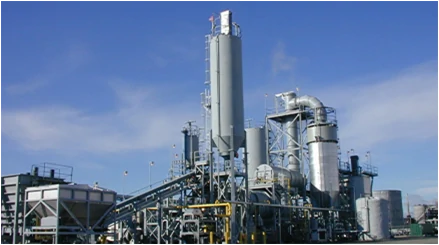
9 月 . 16, 2024 19:10 Back to list
does glacial acetic acid expire
Does Glacial Acetic Acid Expire?
Glacial acetic acid, a concentrated form of acetic acid (CH3COOH), is widely used in laboratories, industries, and even in food preservation. Its clear, colorless liquid nature and pungent smell contribute to its various applications, from serving as a solvent to acting as a chemical reagent. However, a pertinent question arises for users Does glacial acetic acid expire?
To address this question, it's crucial to understand the properties of glacial acetic acid. Generally, pure chemicals like glacial acetic acid have high stability when stored properly. They do not have a specific expiration date like food products. Instead, their longevity and effectiveness depend significantly on how they are stored and the conditions they are exposed to over time.
Glacial acetic acid should be stored in carefully chosen conditions to ensure its longevity. It is advised to keep it in a tightly sealed container, preferably made of glass or high-density polyethylene (HDPE), to prevent contamination from environmental factors. Exposure to air can lead to the absorption of moisture, which may dilute the acid, and thereby affect its concentration and chemical properties. Moreover, it should be stored away from light and extreme temperatures, as heat can cause thermal degradation over time.
does glacial acetic acid expire

Despite its inherent stability, impurities can accumulate if the acid is not stored properly. Contamination can lead to the formation of byproducts that may alter its effectiveness. Therefore, always check for any visible changes, such as discoloration or sedimentation, which could indicate decomposition or contamination. If such signs are observed, it is safer to dispose of the substance responsibly rather than take the risk of using compromised materials.
Another factor influencing the shelf life of glacial acetic acid is its grade. Reagent-grade acetic acid typically has fewer impurities than technical-grade acetic acid. Consequently, reagent-grade materials generally have a longer effective life and are preferred for scientific applications where precision is crucial.
Users should also consider the intended use of glacial acetic acid. In laboratory settings where precise concentrations of chemicals are necessary, compromised acetic acid can lead to experimental errors. While the chemical may not technically expire, its reliability can diminish if its purity is questionable.
In conclusion, while glacial acetic acid does not have a traditional expiration date, its stability and usability are highly dependent on proper storage and handling. The key to maintaining its effectiveness lies in protecting it from contamination and unfavorable environmental conditions. Regularly inspect your supply for signs of degradation, and when in doubt about its integrity, it’s better to err on the side of caution. Responsibly managing your chemical supplies ensures both safety and reliability in their applications, safeguarding the quality of your work in any field that employs this essential compound.
